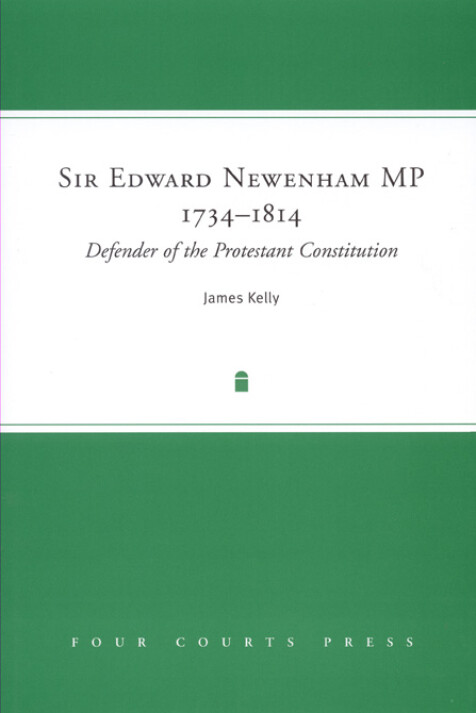Sir Edward Newenham MP, 1734–1814
Defender of the Protestant constitution
James Kelly
Propagandist, popular politician, conservative reactionary, Edward Newenham excited sharply different responses during his lifetime. He was encouraged by his admiration for Charles Lucas in Ireland and John Wilkes in England to take up the issue of parliamentary reform, and by his support for the cause of the American colonists to become one of the warmest advocates of American independence from Britain this side of the Atlantic during the American Revolution. His admiration for the American cause brought him into contact with Benjamin Franklin, who aspired to recruit him to the American cause, George Washington, John Jay and the marquis of Lafayette who introduced him to the court of Louis XVI though Britain and France were at war. Their surviving correspondences provide one of the main sources for this study, and they show clearly that Newenham did not, as some contemporaries believed, ever engage in treasonable activity. His commitment throughout his political life was to uphold the Protestant constitution, and it is this commitment that allows one to make sense of a life that saw him make a significant contribution as a reforming revenue officer, as a prolific and outspoken propagandist, as a popular MP for County Dublin for more than twenty years, as a Volunteer officer, and finally as a conservative ideologue who supported the Act of Union and opposed Catholic relief.
He was also a devoted husband and father (to eighteen children) until his mismanagement of his inheritance, largely on the construction of Belcamp Hall in north County Dublin, precipitated him on an economic roller coaster that caused him to spend a spell in a debtors' prison. He died in genteel poverty, but he remained until the end a representative voice of that strong strand of Protestant opinion that believed utterly in the merits of a 'Protestant constitution'.
James Kelly is head of the department of history, St Patrick's, DCU. His books include Gallows speeches from eighteenth-century Ireland (2001) and Henry Flood: patriots and politics in 18th-century Ireland (1998). He is co-editor, along with Dáire Keogh, of History of the Catholic Diocese of Dublin (1999).

